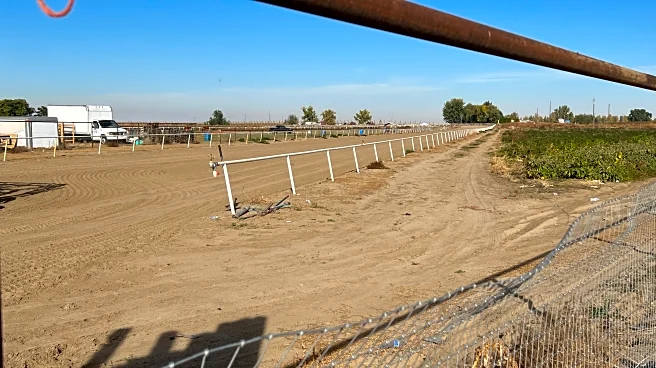What's Happening?
Several Western countries, including the United Kingdom, France, and Canada, are poised to formally recognize a Palestinian state ahead of the United Nations General Assembly. This move is seen as a symbolic milestone for the Palestinian cause, as it includes recognition from three G7 countries, two of which are permanent members of the United Nations Security Council. Despite this diplomatic gesture, the feasibility of a two-state solution remains in doubt due to ongoing Israeli policies and the governance challenges faced by the Palestinian Authority (PA). The Israeli government, led by Prime Minister Benjamin Netanyahu, has been vocal in its rejection of a Palestinian state, with far-right ministers advocating for the annexation of the West Bank and expulsion of Palestinians from Gaza. The expansion of Israeli settlements in the West Bank further complicates the establishment of a sovereign Palestinian state.
Why It's Important?
The recognition of Palestinian statehood by Western nations marks a significant shift in international diplomacy, potentially altering the dynamics of the Israeli-Palestinian conflict. While the recognition is largely symbolic, it underscores growing international support for Palestinian independence and challenges Israeli policies that undermine the two-state solution. This development could pressure Israel to reconsider its stance, especially as the European Union, Israel's largest trading partner, considers imposing trade restrictions in response to settlement expansions. However, the recognition also places greater responsibility on the Palestinian Authority to demonstrate effective governance and security measures, which are crucial for the viability of a Palestinian state.
What's Next?
The international community, including the United Nations, is expected to continue advocating for a two-state solution, with potential diplomatic and economic measures aimed at influencing Israeli policy. The European Union may impose sanctions or trade restrictions on Israel in response to settlement expansions, which could have significant economic implications. Additionally, the Palestinian Authority faces the challenge of proving its capability to govern effectively and maintain security, which is essential for gaining further international support and achieving statehood.
Beyond the Headlines
The recognition of Palestinian statehood by Western nations could have long-term implications for international law and diplomacy. It highlights the importance of respecting territorial integrity and political independence, as outlined by international norms. This development may also influence other countries to reconsider their stance on Palestinian statehood, potentially leading to broader international consensus. However, the ongoing Israeli-Palestinian conflict remains a complex issue, with deep-rooted historical, political, and social factors that continue to hinder peace efforts.










